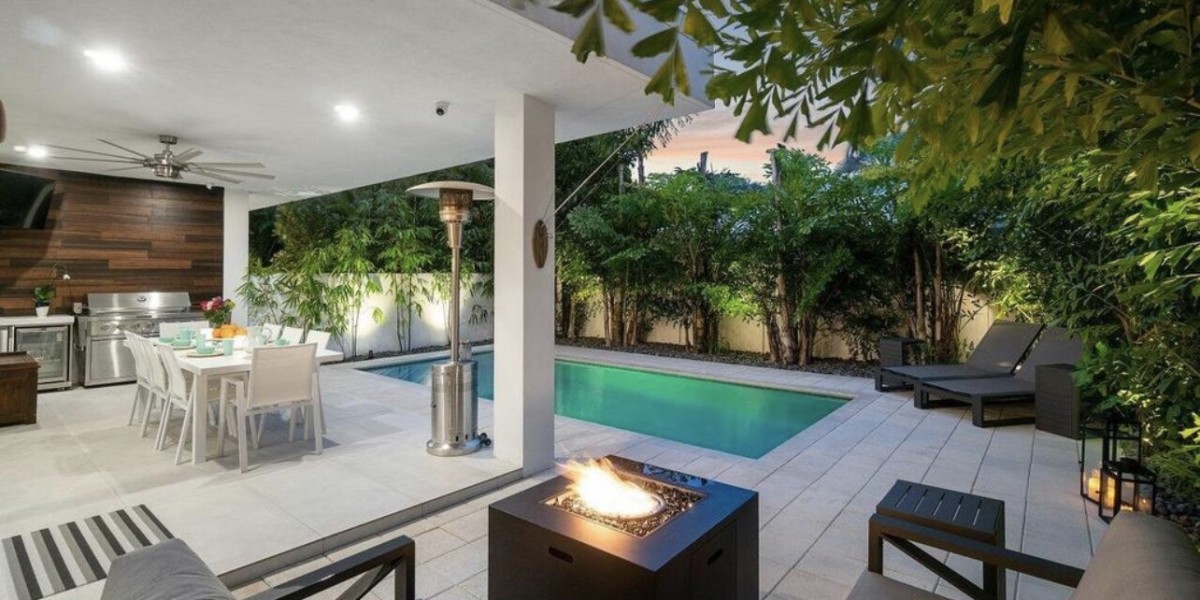When guests visit a hotel, the pool is often one of the most anticipated amenities. Whether it's a relaxing dip after a long day or a family-friendly activity, the pool experience can significantly influence guest satisfaction. Behind every clean, safe, and crystal-clear hotel pool is an often-overlooked but crucial space — the hotel pool equipment room. This area houses the heart of the pool’s operational system and ensures it runs efficiently and safely.
What Is a Hotel Pool Equipment Room?
The hotel pool equipment room is a designated space that contains all the mechanical and chemical systems needed to operate and maintain the hotel’s swimming pool. This room is typically located near the pool area, often underground or in a concealed area of the facility to minimize noise and visibility. Despite being out of sight, it plays a critical role in commercial pool maintenance and water quality control.
Key Components of a Hotel Pool Equipment Room
A well-designed hotel pool equipment room is organized, properly ventilated, and contains a variety of high-performance components. Here are the main elements typically found in a pool equipment room:
- Pool Pumps
Pool pumps are the core of any circulation system. They draw water from the pool through drains and skimmers, push it through filters and heaters, and return the clean, treated water back to the pool. In commercial settings like hotels, high-efficiency variable speed pumps are commonly used to reduce energy consumption and ensure continuous water flow.
- Filtration Systems
The filtration system is responsible for removing physical debris and particles from the water. Sand filters, cartridge filters, and diatomaceous earth (DE) filters are common in hotel pool setups. Regular backwashing and maintenance of filters are necessary to ensure optimal performance.
- Water Heaters
Maintaining a comfortable water temperature is essential for guest comfort. Commercial pool heaters — often gas, electric, or solar — are installed in the equipment room and are regulated to maintain consistent temperatures. Energy-efficient models help reduce utility costs while ensuring a pleasant swimming experience.
- Chemical Feeders and Chlorination Systems
Proper water sanitation is a must for hotel pools. Automated chemical feeders dispense chlorine or bromine in precise amounts. Some hotels also use saltwater chlorination systems, which generate chlorine through salt electrolysis. These systems help keep water free of harmful bacteria, algae, and other contaminants.
- pH and ORP Monitoring Systems
Modern pool automation systems include sensors that monitor pH levels and oxidation-reduction potential (ORP). These sensors help maintain water balance, which is crucial for swimmer safety, chemical effectiveness, and equipment longevity.
- Ventilation and Dehumidification
The hotel pool equipment room must be properly ventilated to prevent the buildup of chemical fumes and humidity. In indoor pool settings, dehumidifiers and HVAC systems are critical to protect the facility from moisture damage and to maintain air quality.
- Electrical Panels and Control Systems
These components manage the operation of the pool’s electrical equipment. Modern control systems often include digital timers, remote access, and automation features, allowing hotel staff to monitor and adjust pool settings easily.
Importance of Proper Equipment Room Maintenance
Routine maintenance of the hotel pool equipment room is vital for operational efficiency and guest safety. Poorly maintained systems can lead to:
- Cloudy or unsafe water conditions
- Equipment breakdowns
- Increased energy and chemical costs
- Negative guest experiences and reviews
Regular inspections, scheduled servicing, and prompt repairs can significantly reduce downtime and extend the lifespan of pool equipment.
Best Practices for Managing a Hotel Pool Equipment Room
To ensure the equipment room functions efficiently, hotels should implement the following best practices:
- Create a Maintenance Schedule
Set a regular schedule for checking filters, pump pressure, chemical levels, and electrical components. Logging each inspection helps track system performance and detect issues early.
- Train Staff Properly
Only qualified and trained personnel should manage the pool equipment room. Understanding chemical safety, proper handling, and emergency procedures is essential for avoiding accidents.
- Use Automation and Smart Systems
Investing in smart pool technology can simplify maintenance and improve efficiency. Remote monitoring allows facility managers to receive alerts and make adjustments in real-time.
- Keep the Room Clean and Organized
Ensure all tools, spare parts, and chemicals are stored properly. An organized space reduces the risk of cross-contamination or mishandling of hazardous substances.
- Ensure Compliance with Local Regulations
Hotel pools must comply with local health codes and safety regulations. Regular audits and compliance checks ensure the equipment room meets standards and avoids fines or closures.
Choosing the Right Commercial Pool Equipment
When designing or upgrading a hotel pool equipment room, it's important to invest in high-quality commercial pool equipment. Factors to consider include:
- Pool size and volume
- Guest usage and turnover rates
- Indoor vs. outdoor location
- Local climate and weather conditions
- Energy efficiency ratings
- Compatibility with automation systems
Working with experienced pool contractors or consultants can help hotels choose the most suitable equipment for their specific needs.
Conclusion
The hotel pool equipment room may be hidden from guest view, but it plays a vital role in the success of the hotel’s pool operations. From pumps and filters to chemical feeders and automation systems, each component contributes to the cleanliness, safety, and enjoyment of the pool. Proper setup, regular maintenance, and adherence to best practices ensure that guests continue to enjoy a top-tier swimming experience — while hotels benefit from lower costs, longer equipment lifespan, and higher satisfaction ratings.



